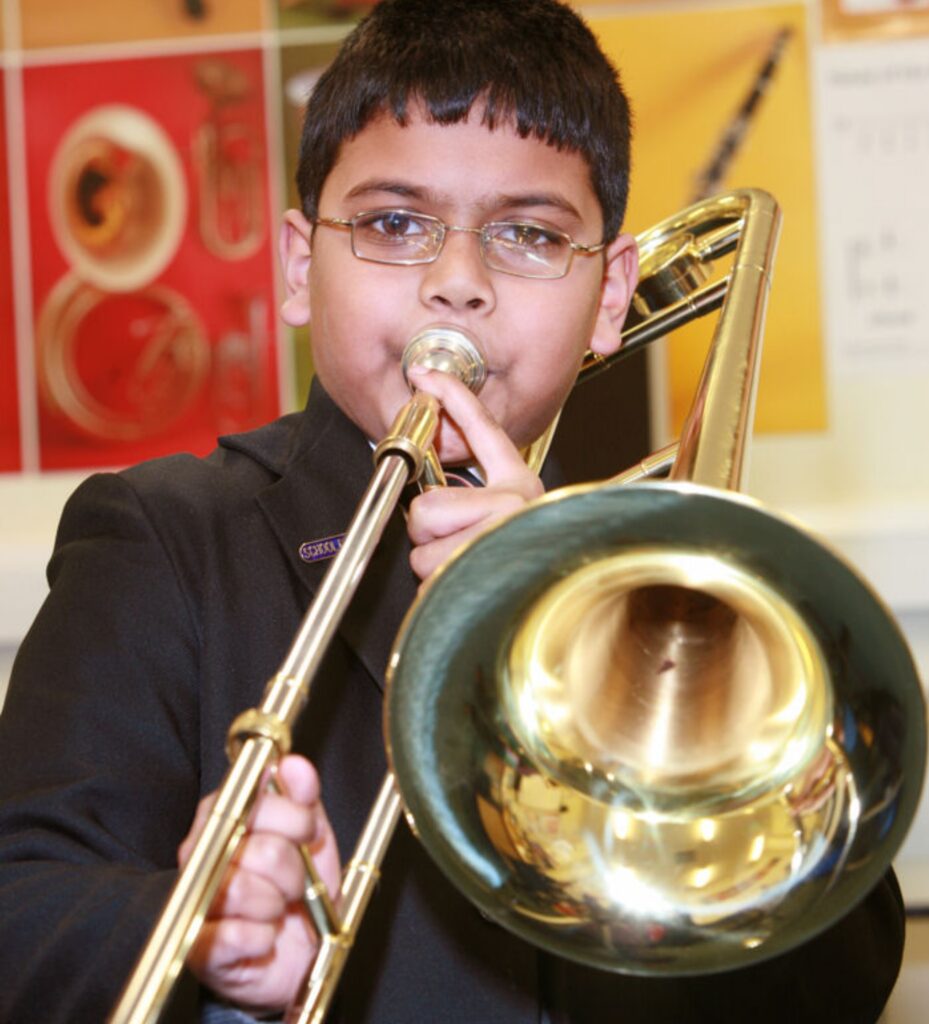Faculty of:
Music
Members of staff:

• Steve Allen – Facilitator of Music
• Mr L. Bassignani: Guitar & Bass (4 hours per week)
• Mr M. Thomas/ Mr J. Gibson: Brazilian, Cuban & African Percussion (4 hours per week)
• Mr J. Gibson: Drum Kit (3 hours per week)
• Mr S. Khan: Flute, Clarinet and Saxophone (1 hour per week)
About the department:
In the music department, our vision is that:
• Music will play an important role in the wider school environment, and all pupils will have the opportunity to participate in musical performances;
• Pupils will develop a lifelong love and appreciation of music, enabling them to participate in music making.
• Students in Years 7, 8 and 9 will develop the musical skills and knowledge required to appreciate the study of music.
We achieve this by developing a KS3 curriculum which develops pupils’ performance and composition skills, and their musical knowledge, while giving pupils the opportunity to explore their own musical tastes and interests. In addition to their weekly music lesson, pupils are encouraged to participate in Stepney Green’s instrumental scheme, where they have the opportunity to learn a musical instrument free of charge.
Why study music?
The creative industries have moved into first place to be the fastest growing economic sector in the UK, responsible for 5.6% of jobs, and worth £76.9bn to the UK economy. Music education is a path to life-long learning and knowledge of self and culture. It supports healthy social development and the quality of a young person’s life, and it prepares young people for success in the 21st century workplace.
On the Government website – a booklet titled, “Music Education in England” states;
1.7 ‘Government priorities recognise music as an enriching and valuable academic subject with important areas of knowledge that need be learnt, including how to play an instrument and sing’.
1.8 ‘Secondary benefits of a quality music education are those of increased self- esteem and aspirations; improved behaviour and social skills; and improved academic attainment in areas such as numeracy, literacy and language. There is evidence that music and cultural activity can further not only the education and cultural agendas but also the aspirations for the Big Society’.
https://www.gov.uk/government/publications/the-importance-of-music-a-national-plan-for-music-education
Music education facilitates student academic achievement:
• Improves recall and retention of verbal information
• Advances math achievement
• Boosts reading and English language arts (ELA) skills
• Increases average SAT scores
Many employers actively seek those who have studied the arts, and Steve Jobs, founder of Apple, was fond of saying his success was due to hiring artists and musicians fascinated by technology rather than ‘computer geeks’. Talent management agencies have found that employees with arts degrees have developed more quickly in their roles, as they have discipline, confidence and the ability to accept criticism
Music is a highly stretching and demanding subject which requires hours of hard work and dedication. Students have to pay great attention to detail to perfect their work. Putting on a concert takes strong organisational skills and a great deal of commitment.
Key stage 3 Curriculum:
The curriculum has 3 main strands: Performing, Composing and Knowledge. The course is practical, and pupils will develop their performance using drums, percussion, guitar, flute, saxophone and clarinet. Pupils learn about music from a wide range of different times, genres and cultures.
Instrumental Scheme:
Our aim is to develop pupils’ musical skills and knowledge and our instrumental scheme provides pupils with a weekly lesson on their chosen instrument with a specialist instrumental teacher. Lessons are run either 1:1 or in a small group, and are free of charge. The instruments currently offered are percussion, guitar, bass, clarinet, saxophone and drum kit.
Electronic Learning
Music Quizzes
Music Education Whiz
BBC Bitesize Music
Curriculum Summary

